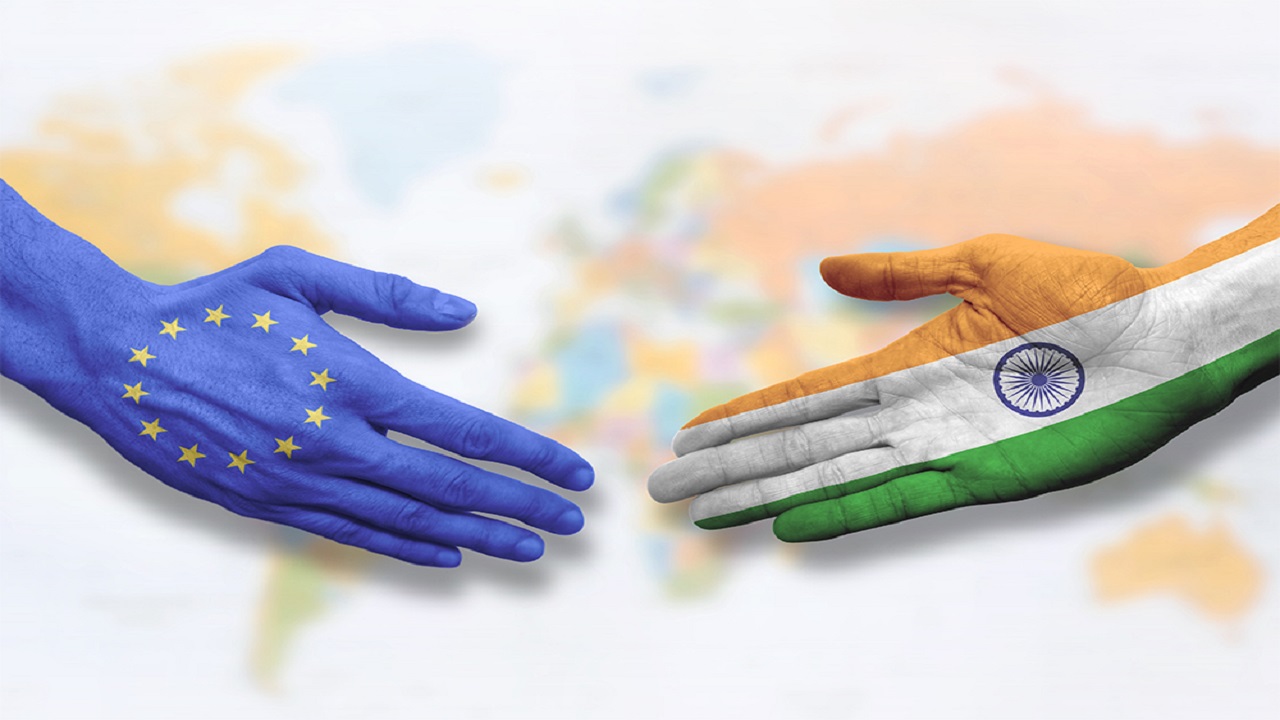India and the EU: Building a Future-Ready Defence Partnership
Context:
Amid the ongoing Russia-Ukraine conflict, changing trans-Atlantic security dynamics, and evolving global power equations, the European Commission’s Joint White Paper (WP) on European Defence Readiness 2030 outlines a strategic plan to boost the EU’s collective defence.
While reaffirming ties with NATO and the United States, the EU is simultaneously seeking greater strategic autonomy and technological self-reliance.
This shift opens new pathways for India-EU defence cooperation, especially in light of India’s growing defence capabilities and strategic neutrality in global conflicts.
Recent high-level visits—such as the Indian Prime Minister's trip to Cyprus and Croatia and the External Affairs Minister’s visits to France, Belgium, and Germany—highlight the strengthening of India-EU strategic relations.
Key Features of the White Paper on European Defence Readiness 2030
Strategic Goals and Defence Spending
-
The EU aims to attain full defence readiness by 2030.
-
Proposes an additional 1.5% of GDP as defence spending.
-
Total projected defence investment: €800 billion over four years.
-
Continues close engagement with NATO and the US.
-
Reaffirms the UK as a key strategic ally.
Seven Priority Areas for Investment
-
Air and missile defence
-
Artillery systems
-
Ammunition and missile stockpiles
-
Drones and counter-drone systems
-
Military mobility
-
Advanced technologies like AI, quantum, cyber, and electronic warfare
-
Strategic enablers and critical infrastructure protection
Global Outreach and Indo-Pacific Partnerships
-
The WP proposes strengthening defence ties with Japan, South Korea, Australia, and New Zealand.
-
Suggests a Security and Defence Partnership (SDP) with India, marking a significant diplomatic and strategic shift.
-
Reflects the EU's growing interest in the Indo-Pacific region.
Key Challenges Identified in the WP
-
Rising threats from terrorism, hybrid warfare, cybercrime, and organised crime.
-
Vulnerability in critical raw material supply chains.
-
Broader transnational issues:
-
Migration
-
Technological disruptions
-
Climate change
-
-
Identifies China as an authoritarian actor influencing the European economy and public sphere.
Opportunities for India
1. Defence Exports
-
India’s defence exports reached ₹23,622 crore (~$2.76 billion) in FY 2024–25.
-
EU’s immediate focus on ammunition and weapons replenishment creates export potential for:
-
ATAGs (Advanced Towed Artillery Guns)
-
Pinaka rocket launchers
-
Air defence systems and radars compliant with NATO standards
-
-
Note: India, maintaining neutrality in the Russia-Ukraine conflict, does not supply arms to Ukraine.
2. R&D and Defence Innovation
-
The WP identifies AI, quantum tech, hypersonics, and biotech as critical dual-use technologies.
-
India can engage in joint research and development and promote integration of its startups and SMEs in EU’s defence ecosystem.
-
Potential to join EU Defence Innovation Scheme (EUDIS), building on India’s experience with INDUS-X (India-US defence tech initiative).
3. Regulatory and Strategic Integration
-
India must align with EU’s evolving defence procurement frameworks to access long-term opportunities.
-
Harmonisation of defence regulations in the EU may affect India’s export standards and supply chains.
-
India should pursue cross-certification of defence equipment to access the future EU Common Defence Market.
Broader Areas of India-EU Engagement
1. Space and Cybersecurity
-
The EU’s increasing focus on military applications of space and cyber technologies offers room for Indian industries to collaborate.
2. Infrastructure and Mobility
-
Indian EPC (Engineering, Procurement, and Construction) firms can secure contracts in EU-led military infrastructure projects, including ports and mobility corridors.
3. Migration, Mobility, and Skilling
-
There is potential to create job opportunities for Indian professionals.
-
India should engage in discussions on migration and mobility frameworks, particularly as part of the India-EU Free Trade Agreement (FTA).
Strategic Significance for India
The emergence of an EU Defence Union and greater European strategic autonomy presents a historic opportunity for India to:
-
Strengthen defence exports
-
Build deeper strategic partnerships
-
Promote atmanirbharta (self-reliance) in defence
-
Align with global technological and innovation standards
India must position itself as a credible, neutral, and strategic partner in the evolving Euro-Atlantic security architecture.
Conclusion
The European Defence Readiness 2030 is a significant step towards redefining Europe’s security and defence priorities.
For India, it is a timely and strategic opportunity to:
-
Deepen its engagement with Europe
-
Enhance technological and defence cooperation
-
Expand its strategic influence
-
Achieve greater self-reliance and integration in the global defence landscape




Comments (0)